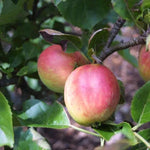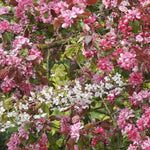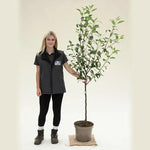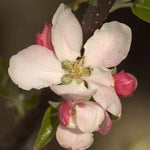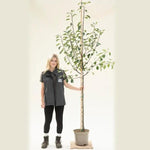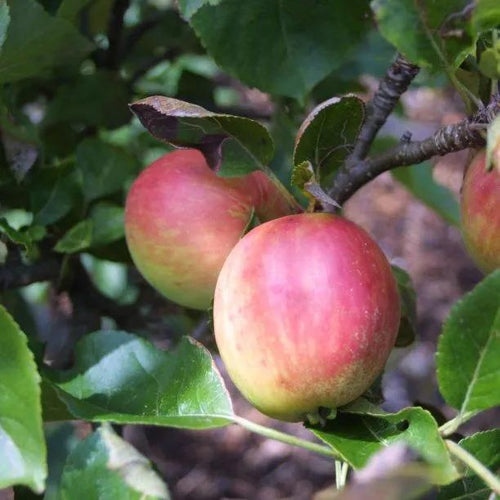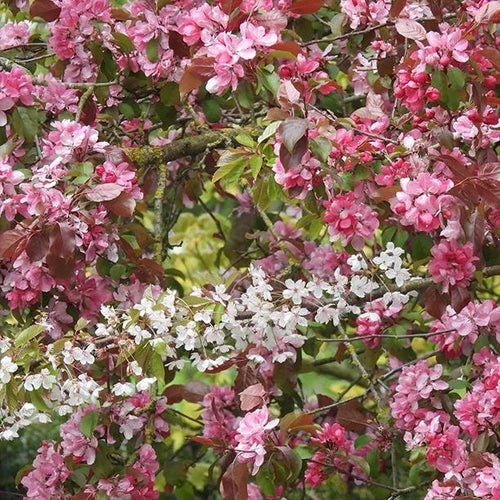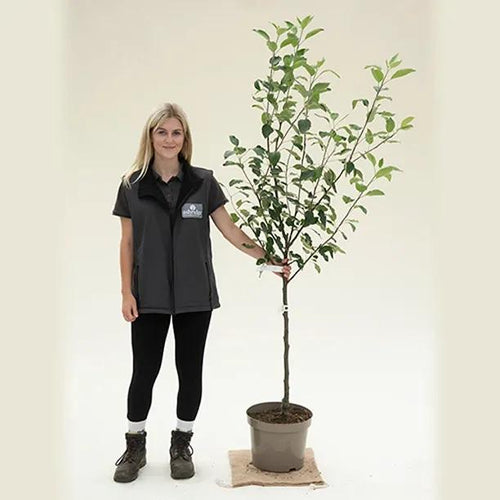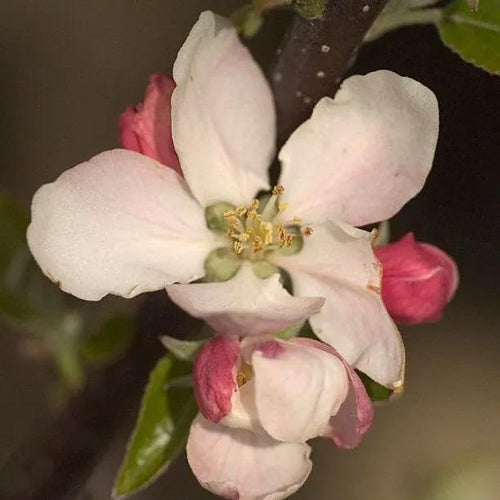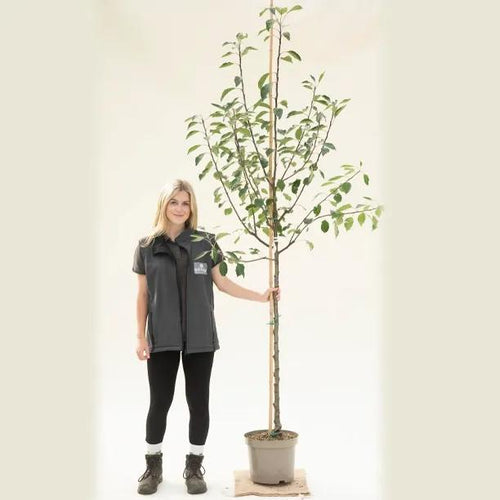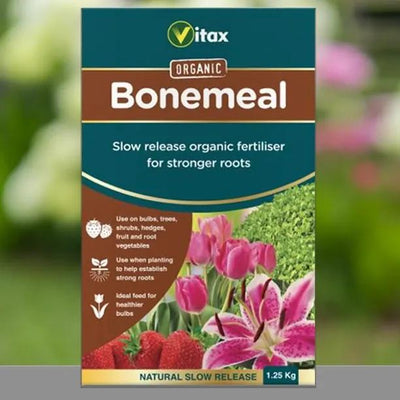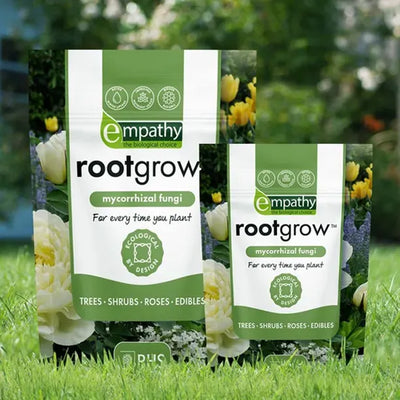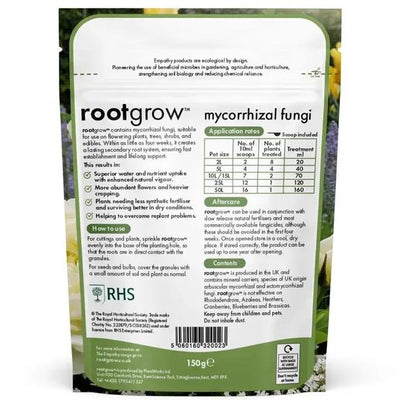Coxs Orange Pippin Apple Trees
'Coxs Orange Pippin' apple trees carry quintessentially English eating apples that juice very well: in a good season they are an unusual orange-russet colour. It only stores for 3 weeks, so freeze the juice from your excess apples.
The tree is quite slow-growing and upright; it's ideal for low maintenance cordons & espaliers.
Browse our range of apple trees, or all our fruit trees.
Read our guide to buying apples.
Delivery season: Bareroot plants are delivered in late Autumn to Spring, about November-March inclusive. Pot grown plants, year round.
Features
- Eating: Supreme flavour. Quite soft flesh, very juicy.
- Spur bearer
- Self fertile
- Pollinator
- Pollination Group C
- Crops in Late Sept / Early Oct.
- Store for 3 weeks
- Low vigour.
- Not recommended for organic growing
- More disease prone in the humid West
Growing Cox Apples
Apples like rich, well drained soil, and will thrive on clay in locations that do not get waterlogged in winter.
A full day of sun and shelter from the wind is ideal.
Cox's Orange Pippins are more susceptible to disease than most, unsuitable for organic growing commercially.
It's not ideal for the more humid, warmer areas in the West and South of Britain, where scab and canker are more common. Although it'll perform better in a cooler climate, it's not recommended for the North & Scotland because its flowers are easily damaged by late spring frosts.
They're generally happier in the drier Eastern parts of the country, although we have a large stock tree here in Somerset that crops wonderfully, thanks to the attention we give it. We do not spray it apart from with organic winter wash, we only follow best practice: plenty of mulch annually, sweeping up fallen leaves and fruit, removing bad ones, and some water in a dry summer spell so the tree is never stressed.
Rootstocks:
We use MM106 for Cox, the UK standard for medium-sized trees, ideal for gardeners. It gives a half-standard about 4m tall, and a bush about 3m.
MM106 maidens are suitable for cordons and espaliers, but we use the less vigorous M9 for our ready-made cordons.
Cox Disease notes:
Disease susceptibility: Scab, Canker (high), Mildew, Fireblight, Cedar Rust, Bitter Pit (moderate). Recommended alternative is Fiesta, which has similar flavour and better disease resistance.
Pollination Partners for Cox
Your trees are self fertile, making decent crops without a pollination partner, but still perform best with one.
Cox is in Pollination Group C, which cross-pollinates with other apple trees in Groups B, C and D.
Use our Fruit Pollination Checker to quickly find pollination partners, or Apple Pollination Guide to learn more.








 Secure, One-Tap Checkout
Secure, One-Tap Checkout
 Hand Picked, Delivered to Your Door!
Hand Picked, Delivered to Your Door! 1 Year Bareroot Guarantee
1 Year Bareroot Guarantee